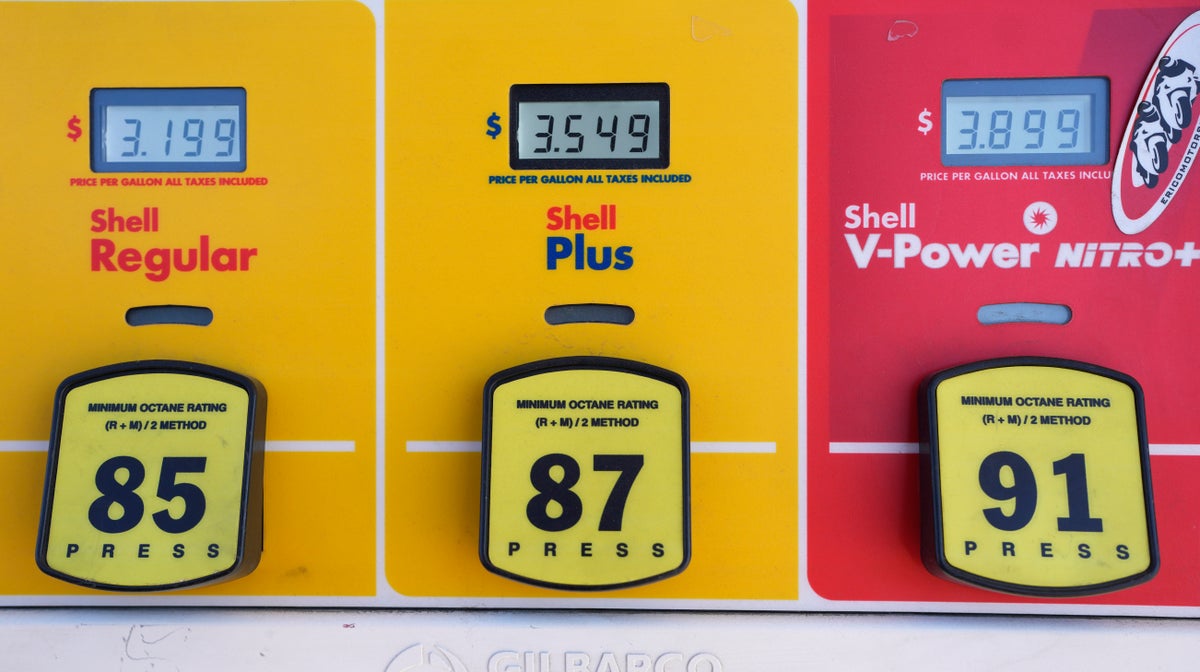
US motorists can expect to see gas prices continue to fall in 2024, according to a new forecast by GasBuddy.
The fuel savings site is predicting the national average unleaded gas price will drop to $3.38 per gallon in the lead up to the 2024 presidential election, down from $3.51 in 2023.
Prices could drop below $3 by the end of the winter, before rising again as the summer approaches, it said. In major cities, drivers are likely to see prices peak at around $4 a gallon in 2024.
“As 2023 fades away, I’m hopeful those $5 and $6 prices for gasoline and diesel will also fade into memory,” GasBuddy’s head of petroleum analysis Patrick De Haan said in a statement.
Fuel costs were severely impacted by the Russian invasion of Ukraine in 2022, when the average price per gallon hit $3.95, and briefly soared past $6 in California.
Even with war still raging in Europe and concerns that the Israel-Hamas conflict could broaden, GasBuddy expects US consumers will save around $32bn on fuel costs in 2024 compared to 2023.
Gas prices are tipped to fall again in 2024— (Associated Press)
“These situations, as well as the fluid state of the global economy, fiscal policy by central banks to tame inflation, as well as potential interest rate cuts could alter the direction of the economy, shifting fundamentals in significant ways,” Mr De Haan said.
The 2024 presidential election and the growing transition to electric vehicles will likely have an impact on prices at the pump, he said.
The US increased oil production to a record 13.2 million barrels per day in November, which will help to offset any declines in exports by OPEC countries, GasBuddy said in a news release.
“Offsetting OPEC+’s production cuts is contributing to the rise of US oil production, which now stands at record levels,” Mr De Haan said.
“Combined with Canada, North American oil production could further stabilize countries that have decided to curb oil production.”
While the declining gas prices will ease pressure on household finances, which have been battered by high inflation for the past two years, record-high domestic oil production stands at odds with the Biden administration’s stated goal of reducing carbon emissions.







